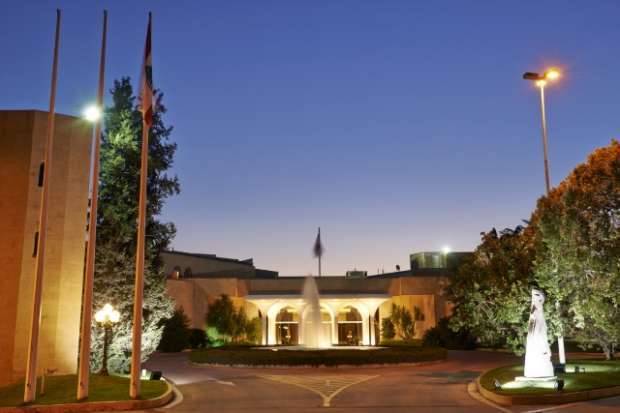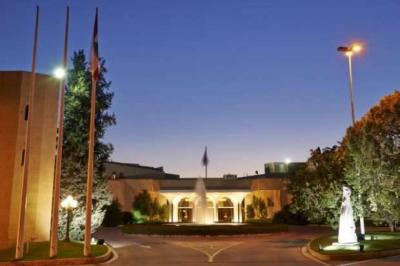The prospects for postponing the presidential elections are rising, amid declining interest and a lack of discussion about it or the range of candidates, as if there is an acknowledgment that the presidential election will once again be "put in the fridge." It is rare for the presidential election to face such a degree of neglect. Even during the peak of preparations for a presidential vacancy, the presidential situation occupied the politicians and filled the Lebanese political landscape.
Today, with just a month and a few days left until the start of the constitutional period to elect a new president, there is nothing to suggest that the election is happening, neither on schedule nor afterward, especially since the chances of an early presidential election have evaporated. Although there are periodic reports that President Nabih Berri would call for a session to elect the president at the beginning of September, this does not imply that elections will actually take place. In contrast, there are discussions suggesting that the cancellation of the elections is increasing like a snowball, leading to advanced discussions in political circles that justify the declining interest in the election.
In previous phases, the presidential scene was clearly defined based on economic or security conditions, and candidates' names would emerge, such as the then-acceptable Central Bank governor or the army commander. Between these, the list of Maronite figures would expand or contract between technocrats, lawyers, security personnel, politicians, and bankers in Lebanon and abroad, based on internal and regional conditions. Some names would fade while others persisted, causing the list to change from one election to another.
The settlement of former President Michel Sleiman following the Doha Agreement was one of the first examples and the latest of choosing candidates outside the usual alignments, although it remained within the periodically proposed candidates’ lists, before reaching the settlements with President Michel Aoun and former Prime Minister Saad Hariri. The settlement, to which the Lebanese Forces contributed after the Maarab Agreement, pointed to the dominance of political alignment over other factors, especially given that neither the internal situation nor the regional positioning was as intense as what Lebanon and the region are experiencing today, which strengthens the possibility of a similar choice in the current phase and diminishes the likelihood among Hezbollah's opponents of selecting a figure from its ranks.
However, between Hezbollah's calculations regarding its leadership in the March 8 Forces and the presidential vacancy, fears are growing among the party's opponents that the latter option might be safer for the party to keep the presidency "in the fridge." This concern is reinforced not only by the party's performance and the wait for the crystallization of regional options, but also by the lack of any clear plan from its opponents to accompany the election process.
Unlike the alignment of the March 14 Forces against the March 8 Forces after 2005, and despite neither side's candidates reaching the Baabda Palace, the election of Aoun contributed to the fracturing of Hezbollah's opponents, leading to the current electoral phase where the opposition acts without a broad umbrella that actually establishes a battle for the presidency. While Hezbollah's options appear clearer, even if not final, in choosing its candidates, its opponents have no single list or clear agreement on one name to contest the election. The mention of figures like Army Commander Joseph Aoun, which resurfaced after a period of decline in favor of the name of the head of the Marada Movement, Sleiman Frangieh, or the consideration of new candidates from the change movement and independent deputies, is still being done as a means of gauging the atmosphere or burning names rather than through a coherent plan to engage in the electoral process.
One fundamental outcome of the parliamentary elections highlighted that the opposition was unable to translate its victory into the election of the Speaker of the Parliament or his deputy. This outcome remains the primary ceiling feared by these forces. So far, there is no minimum consensus among the opposition parties, independents, and the group of 13 deputies who have become more expressive of their personal political choices rather than representing the choices of the opposing street. Serious discussions should have started early to lay the groundwork for not just managing the battle and selecting a battle candidate or settlement, but also preparing for the first session likely to be held in five weeks. What will occur starting in September, rather than at the end of October as some new arrivals to the "Star Square" might imagine, is fundamental for shaping the future of the presidency. The same applies to all opposition forces.
The battle for the presidency cannot be conducted solely by those who participated in the elections and won, even though they will cast their votes. The frameworks of the opposition, its figures, and religious authorities, particularly Bkerke, which opened the presidential battle by setting conditions and specifications and eliminating others, should also be part of the collective effort to prepare a suitable ground for the elections, as has been done previously. This is not available even at a minimum, not only among Christian or Maronite forces but also among Sunni and Druze forces, which either hide behind Hariri's withdrawal from political life or behind President Berri and his presidential options, thus not engaging in a serious approach to the presidency. The common denominator among both the opposition and the allies is that the election is "in the fridge" until after October 31. The only difference is that any decision in this regard will not rest with the opposition or those behind it.




